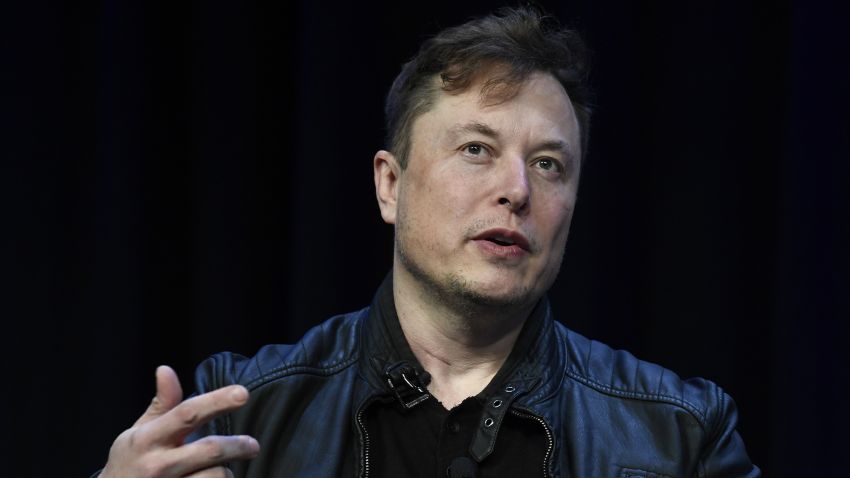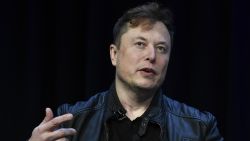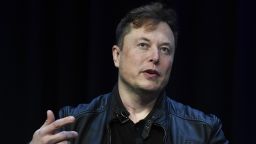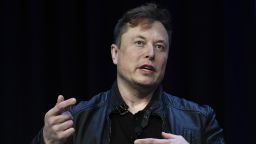Ten days after Elon Musk disclosed he’d become Twitter’s largest shareholder, the world’s richest man has made an offer to buy the company outright.
Musk on Thursday offered to acquire all the shares in Twitter (TWTR) he does not own at a valuation of $41.4 billion, according to a filing with the Securities and Exchange Commission.
Now, the ball is in Twitter’s court. Twitter’s board of directors, on which Musk declined a seat last weekend, will have to consider whether to come to the table to discuss a deal with Musk — a successful but sometimes erratic entrepreneur who recently suggested Twitter may be dying and that it should consider ditching the “w” from its name — or to pursue other avenues, including potentially seeking alternate buyers.
“The board has three options: One, they can go it alone, say, ‘Get lost, we’re good,’” said Donna Hitscherich, a senior lecturer at Columbia Business School. “Two is they can engage with Musk, either at this price or at another price. Three is they can find someone they like better.”
With all three options, however, Twitter and its employees appear to be in for a certain amount of disruption in the days and weeks ahead.
Twitter’s board is said to have convened a meeting at 10 a.m. ET Thursday to discuss the offer, according to a report from CNBC. The company is also holding an all-hands meeting with staff later today to discuss Musk’s takeover bid, a Twitter source told CNN Business. An internal message from Twitter CEO Parag Agarwal to staff read, “It’s important that we all come together today as #OneTeam. Please join me at 2:05pm PT for an all-hands. We will discuss today’s news and what’s next.”
Twitter declined to comment on the timing for the board meeting and reports of an all-hands meeting.
In his letter sent to the company announcing his offer, Musk said he believes “Twitter needs to be transformed as a private company.” He added: “Twitter has extraordinary potential. I will unlock it.”
Musk did acknowledge the uncertain road ahead. “I’m not sure I’ll actually be able to acquire it,” he said in an interview with TED on Thursday afternoon.
It’s possible that the board, which has a fiduciary duty to recommend what’s best for its shareholders, will determine Musk’s offer is a good one worth accepting. Musk’s offer of $54.20 per share is an 18% premium over Wednesday’s closing price and is 38% higher than its closing price on April 1, the last trading day before Musk disclosed his more than 9% ownership stake in Twitter.
“The offer looks very attractive, well priced, and the board, with all its fiduciary duties, is going to have to look carefully at it to see if it’s a fair price and, of course, if the takeover makes sense to everybody in the longer run,” said Mike Useem, a professor of management at the University of Pennsylvania’s Wharton School.
He added that the board may also consider what a takeover by the Tesla (TSLA) and SpaceX CEO could mean for employees and users of the platform, some of whom have voiced concerns about Musk’s influence. But the effect on shareholders will likely be the board’s highest priority.
Still, it’s unlikely the board will simply say, “Yes, thank you very much, and accept the offer,” said Kenneth Henderson, partner at law firm Bryan Cave Leighton Paisner. As part of its process to consider the deal, the board will likely analyze and discuss with lawyers and bankers how Musk’s offer compares to the company’s potential long-term value if it continues on its current path as a public company with its existing strategy.
“In our view, the deal does not get done at this level, and Twitter’s Board will not view this offer, or Mr. Musk leading a change in the company, as in the best interest of the company or shareholders,” Wedbush analyst Ygal Arounian said in an investor note Thursday. Although higher than its recent trading prices, Musk’s offer is well below the nearly $72 that Twitter’s stock was trading at last July following a strong earnings report.
It appears not all of Twitter’s shareholders are enthusiastic about the idea of a Musk takeover. Billionaire Saudi Prince Alwaleed bin Talal, who runs the investment firm Kingdom Holding Company in Saudi Arabia, another large Twitter shareholder, tweeted Thursday that the offer doesn’t “come close to the intrinsic value of @Twitter given its growth prospects … I reject this offer.”
Twitter’s stock fluctuated a bit Thursday but remained mostly flat, around $46, well below Musk’s offer price, suggesting some possible hesitation about the deal or skepticism from investors about it going through. (It may also suggest some skepticism about how serious Musk, who ended up in hot water with regulators in 2018 after falsely suggesting that he had secured funding to take Tesla private, is about completing the deal.)
If the board doesn’t want to play ball with Musk, it may have a few other options. Musk’s offer may open the door for other would-be Twitter owners to make their own bids, potentially at a higher price. Twitter has been an acquisition target in the past, but some of its potential buyers — its larger rivals — may be restrained in making bids because of recent antitrust scrutiny.
The board could also quickly put in place what’s called a “poison pill,” a corporate anti-takeover tactic that essentially reserves the right for all shareholders other than a hostile party to buy more shares at a steep discount, effectively diluting the hostile party’s stake in the company. Such a maneuver would likely kick in if Musk — perhaps looking for other ways to bolster his control over the company or to sidestep the board — decided to make a “tender offer” to buy shares en masse directly from shareholders. And while it wouldn’t necessarily stop Musk in his tracks, it could help bring him to the negotiating table to discuss a higher price, Henderson said.
Still, it might be in the board’s best interest to play nice with Musk as much as possible. Musk suggested in his filing that Thursday’s offer was his “best and final” and that if the board didn’t accept, he would “need to reconsider my position as a shareholder.” If Musk dumps his shares, that could be bad news for Twitter’s stock price and for the company’s leadership team.
Musk, too, could benefit from a friendly process. “It’s best to do it friendly because … [Musk] would like to be able to do due diligence and understand the business,” Hitscherich said.























